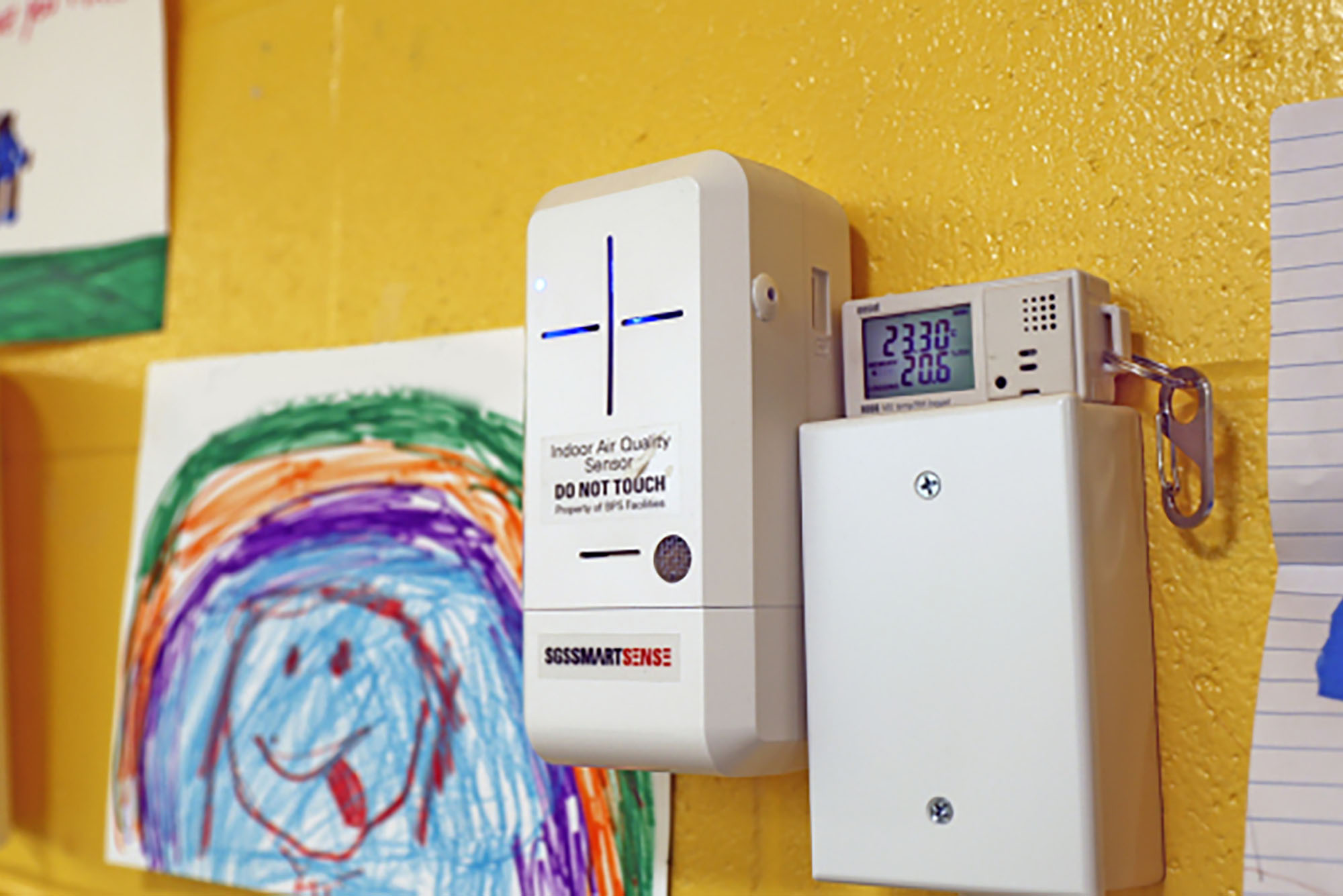Can Cleaner Classroom Air Help Kids Do Better at School?: a Partnership with Boston Public Schools
by Megan Jones

When caregivers meet with teachers, they want all the details on how their children are doing in school: Are they making friends? What subjects do they need a little extra help with? Where are they excelling? But they’re probably not asking about something that could be having an outsized impact on their kids’ education: How’s the classroom air quality?
Boston University environmental health researcher Patricia Fabian has studied indoor air quality for more than 20 years and says the better the air in a school, the better kids perform: improved ventilation has been associated with reduced absences due to illness and higher scores on math and reading tests. Now, a new research collaboration between Fabian and Boston Public Schools (BPS) could lead the way in helping schools improve their indoor air quality.
Since 2022, Fabian has been working with the school district to study the quality of air in the city’s classrooms, leveraging sensors that were installed in more than 4,400 classrooms through $6.7 million in Elementary and Secondary School Emergency Relief funds.
Fabian says there are relatively few standards for indoor air quality, despite a growing body of evidence to suggest that pollutant levels indoors may be significantly higher than outdoors. But the pandemic has reshuffled priorities, as the airborne transmission of COVID-19 called attention to the safety of enclosed, shared spaces and generated increased interest in, and funding for, projects to implement or improve heating, ventilation, and air-conditioning (HVAC) systems in aging public buildings, such as schools.
The pilot study was supported by funding from BU’s Initiative on Cities and from an Established Investigator Innovation Award from idea hub, SPH’s innovation accelerator, and paved the way for Fabian to seek larger grants and expand the partnership’s portfolio of research. From identifying policies that would reduce asthma triggers in classrooms to pinpointing modifications that would make old school buildings more climate resilient and energy efficient, Fabian says she’s writing proposals for studies intended to support BPS’ decision-making, engage the broader BPS community, and reduce environmental health disparities. The data have also been used by students across BU for their own research projects.
Learn more about the project here.

